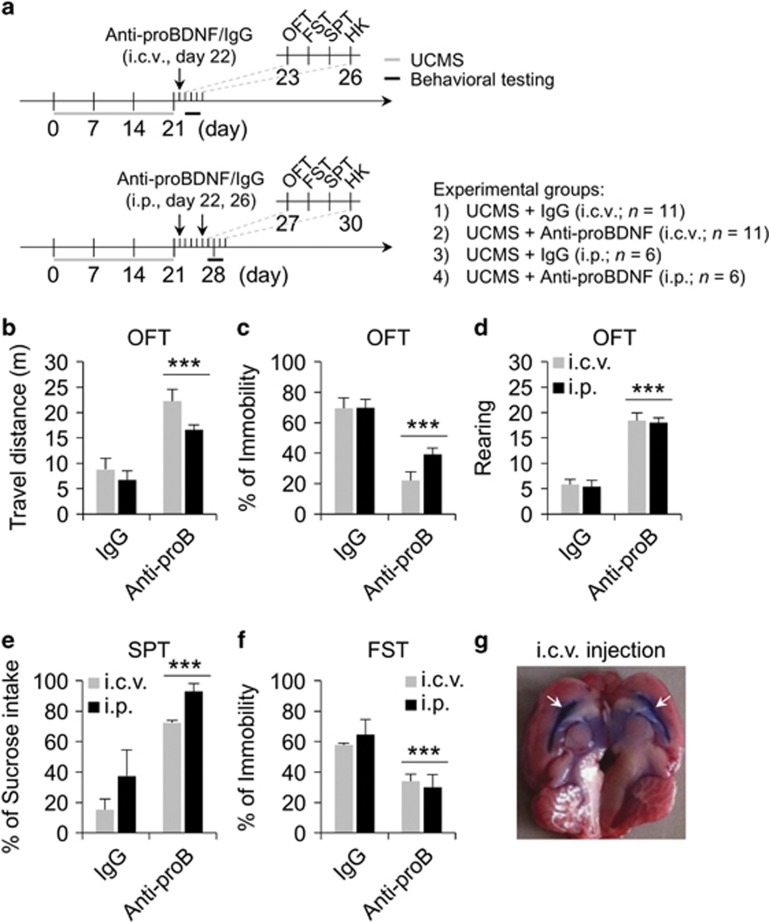Figure 3.
Anti-proBDNF antibody improves UCMS-induced depression-like behaviors in rats. (a) Timeline of UCMS paradigm, antibody injection and behavioral testing. (b–f) The travel distances (b), percentage of immobility (c), and rearing numbers (d) in open field test, the percentages of sucrose intake in sucrose preference test (e), as well as immobility in forced swimming test (f) were compared between UCMS rats that were i.c.v. or i.p. injected with normal sheep serum and anti-proBDNF antibody (i.c.v., 20 μg, 1 μg/μl antibody; i.p., 10 μl per g of body weight, 0.08 μg/μl antibody). (g) The validation of i.c.v. microinjection with 1 × SDS-PAGE sample loading buffer. UCMS, unpredictable chronic mild stress; OFT, open field test; FST, forced swimming test; SPT, sucrose preference test; HK, humane killing; i.c.v., intraventricular; i.p., intraperitoneal; Anti-proB, anti-proBDNF; n=6–11 in each group, ***p<0.001 (Student's t-test). All data are presented as mean±SEM.

